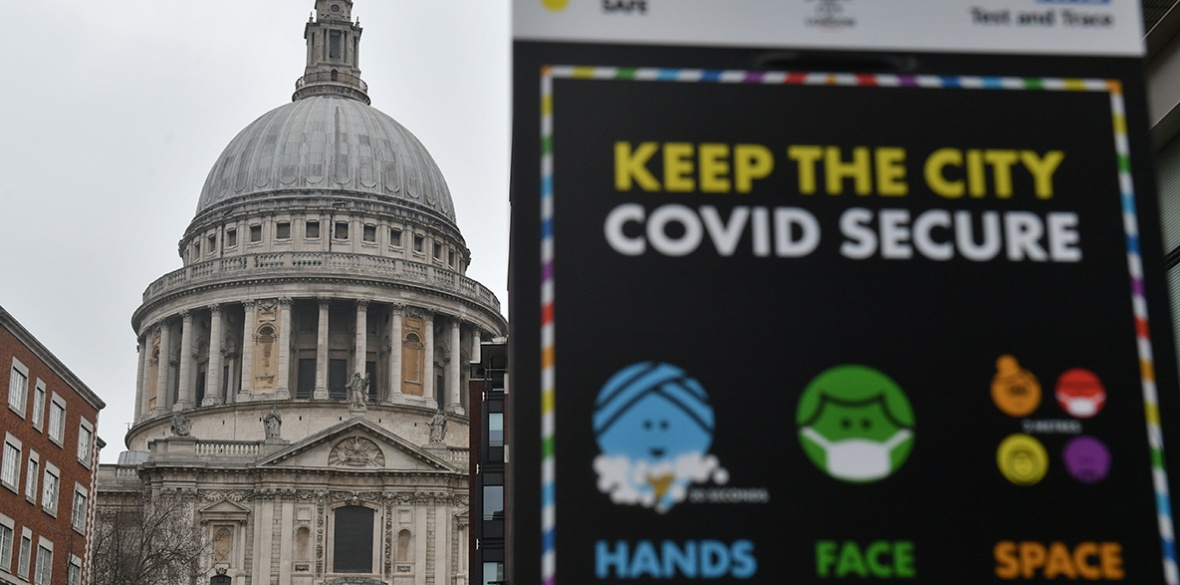This is the last article you can read this month
You can read more article this month
You can read more articles this month
Sorry your limit is up for this month
Reset on:
Please help support the Morning Star by subscribing here
SADIQ KHAN declared a major incident in London today due to the “out-of-control” spread of Covid-19 across the capital.
Covid-19 cases have now surpassed 1,000 in every 100,000 in London, where there are 35 per cent more people in hospital with the virus than at the peak of the pandemic in April.
As many as one in 30 Londoners could now be infected with the disease, according to the Office for National Statistics.
“The situation in London is now critical, with the spread of the virus out of control,” Mr Khan said.
“We are declaring a major incident because the threat this virus poses to our city is at crisis point.
“If we do not take immediate action now, our NHS could be overwhelmed and more people will die.”
Mr Khan implored people to stay at home.
A “major incident” means that the severity of the consequences associated with it are “likely to constrain or complicate the ability of responders to resource and manage the incident.”
Major incidents have previously been declared in 2017 after the Grenfell fire and terror attacks at London and Westminster bridges.
It came as Britain approved its third vaccine today, produced by US company Moderna, and has pre-ordered 17 million doses.
Unite the Union urged Health Secretary Matt Hancock to give clarity to health staff on when they will receive vaccination and assurance that the second dose would be given as soon as possible.
National officer for health Colenzo Jarrett-Thorpe added that, in light of soaring cases, the vaccine roll-out should include “an almost wartime mobilisation of resources.”
But in response to the major incident in London, an ICU nurse at a capital hospital said that the government had “failed us.”
Ameera Sheikh, 28, a Unite representative, said that her colleagues across the country “are so burnt out that they can’t eat.”
“During and after the first wave, a lot of staff had handed in their resignation, and that’s across many hospitals in the UK,” she said.
“A lot of people were just about coping in the first wave, [but] because of the way that they were treated, because of what they saw, the trauma, and not being supported well enough by management — they left.”
She said that the current “massive surge” was worse than the first wave.
“It’s so stressful, my colleagues aren’t coping very well. Some of them are so burnt out that they can’t eat, they can’t sleep, they can’t bring themselves to come into work.
“How has our government failed us, and had all these months to prepare?”












